While elevated garage slabs are relatively rare compared to the overall housing stock, they are a lot more common than most people think. There are a lot of reasons why they are built this way:
1. Creates another room under the garage for a workspace, storage, craft room, or game room.
2. Allows the builder not have to fill the entire space with dirt or stone fill. This is usually scene in houses built into a steep hillside, which is really common in western Pennsylvania.
3. Allows utilities- water, electric, etc. - to be run under the garage slab.
Unfortunately, most of these elevated garage slabs are not waterproofed along the top surface. This allows water and the chloride ions from deicing salts to penetrate the concrete slab down to the steel reinforcing bars (rebar) embedded in the slab and/or the steel metal decking along the bottom of the slab. Through a complicated three-step electrochemical process, the steel begins to corrode and rust. When steel rusts, it expands in volume. That's why you see the steel and concrete separate from each other. Here's an example of an older 1950's era flat concrete slab with corroded rebar and spalled concrete.
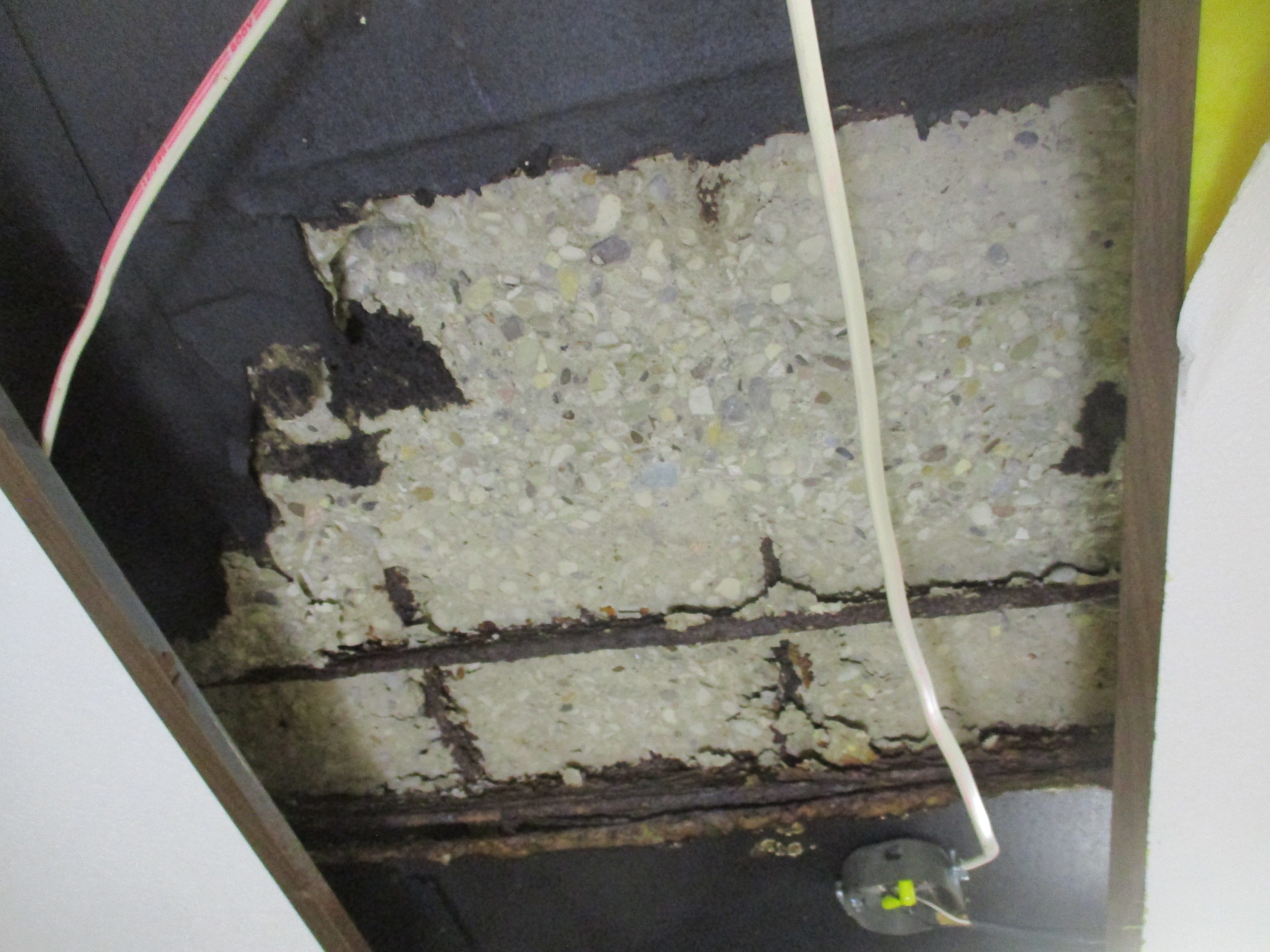
Here's another example of a newer 1990's era garage slab with a concrete slab over metal decking.
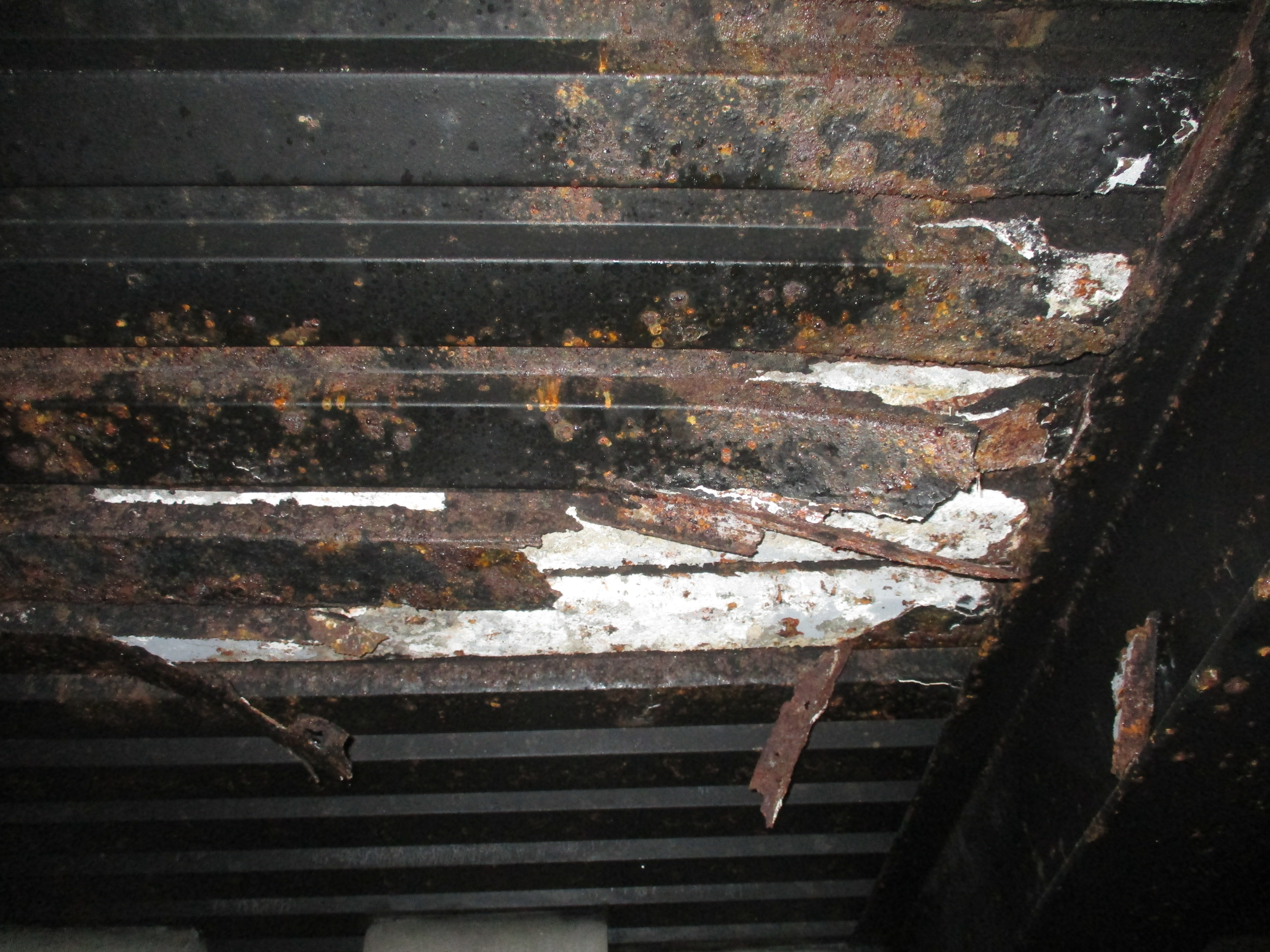
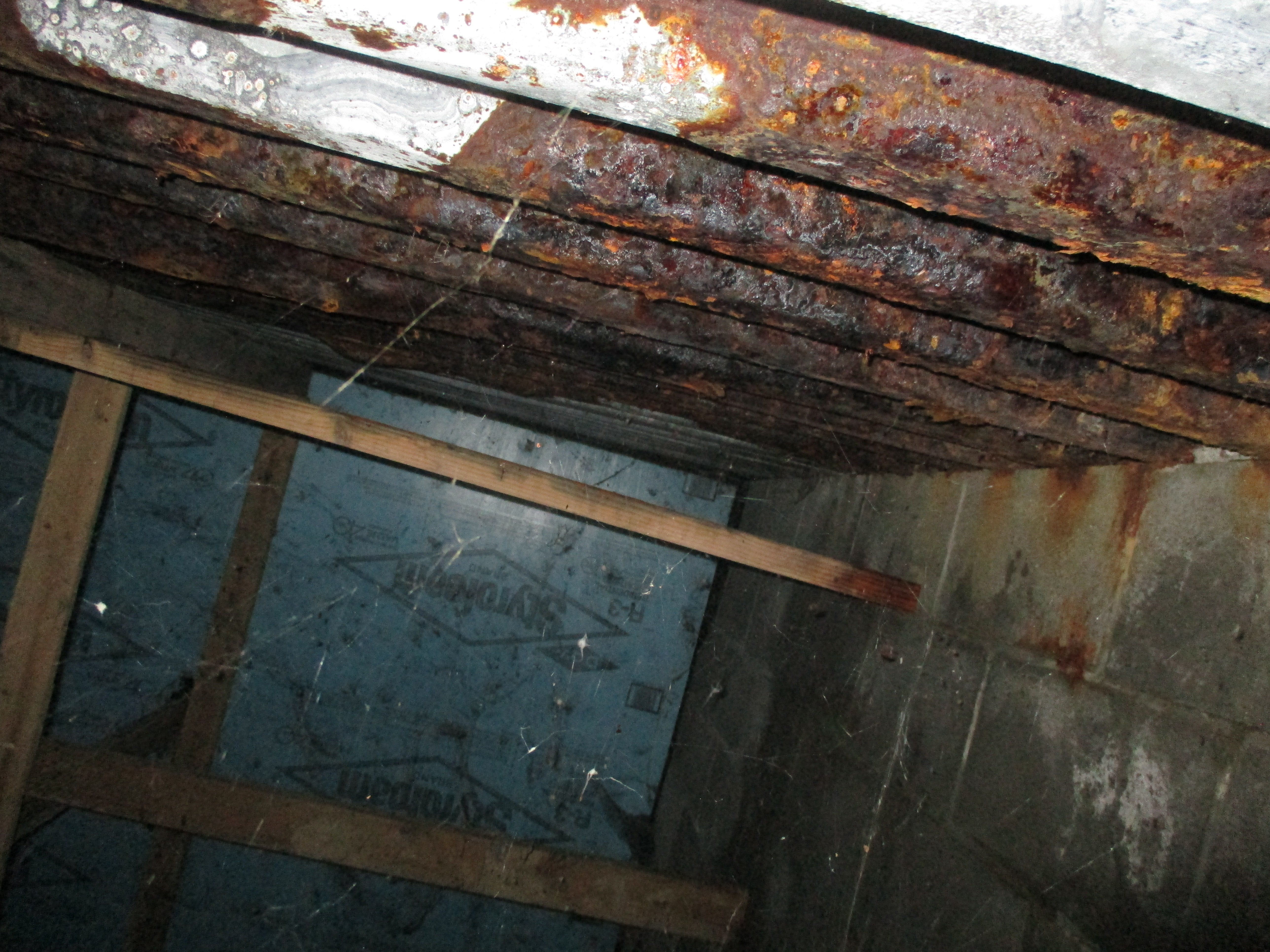
A common misconception is that the metal decking is just a "form" decking, meaning that the decking was used during initial construction when the concrete was poured, and serves no purpose after the concrete cures and becomes hardened. This is not always the case, and needs to be evaluated on a case-by-case basis. Sometimes the metal decking is just a form decking, and there is embedded rebar in the slab. This is how I would design a new garage slab. But sometimes the decking is the only steel element of the elevated slab, meaning it is structural. If the metal decking corrodes, that significantly weakens the slab.
So why does any of this matter? Well, not to be a scaremonger, but if the garage slab corrodes enough, the slab can fail. Here's a few examples of that.
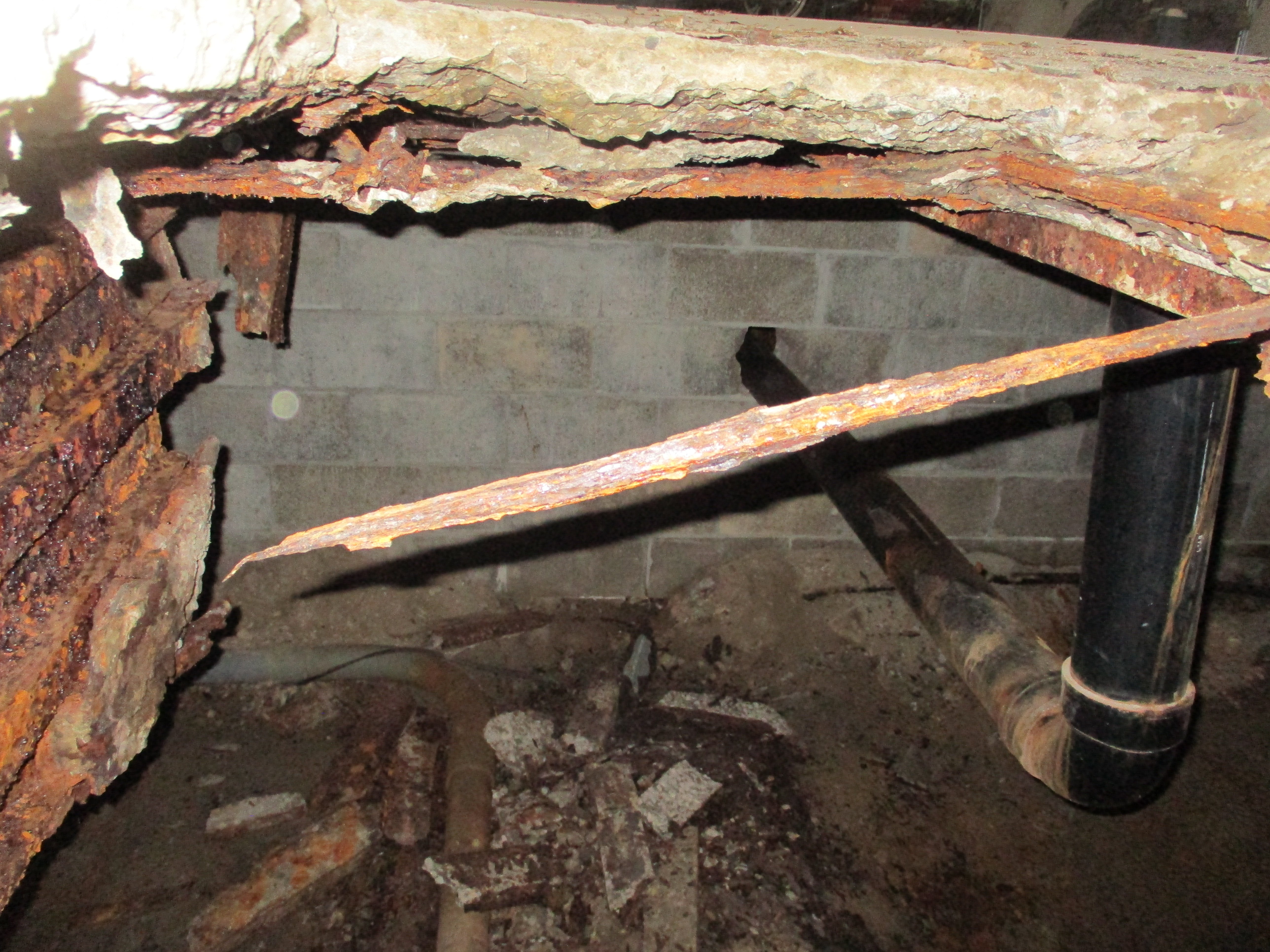
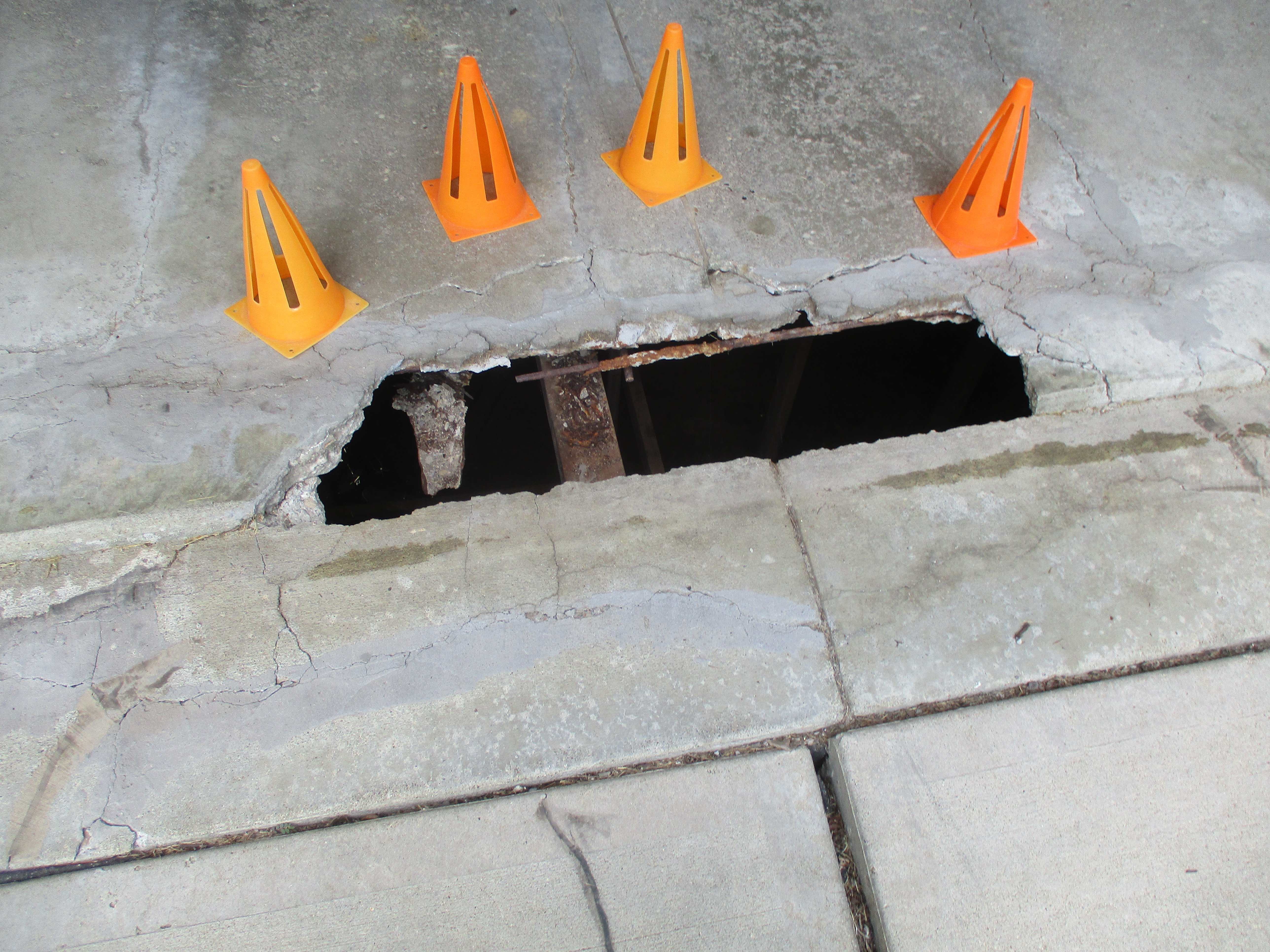
So how can you prevent this? Well first, shameless plug alert, you can have us evaluate your elevated garage slab to provide advice on the current condition of your slab. Second, we always recommend keeping the top surface of your garage slab waterproofed with a protective coating. This will help keep water and chloride ions out of your slab when you pull into the garage on a snowy and slushy day with a car dripping with deicing salts! Third, ensure that the garage slab drains properly. Just because there is one or two floor drains doesn't mean the water will go into it. If your garage slab doesn't drain properly, you may need to lower the elevation of the floor drains, or just squeegee the water to the outside.
